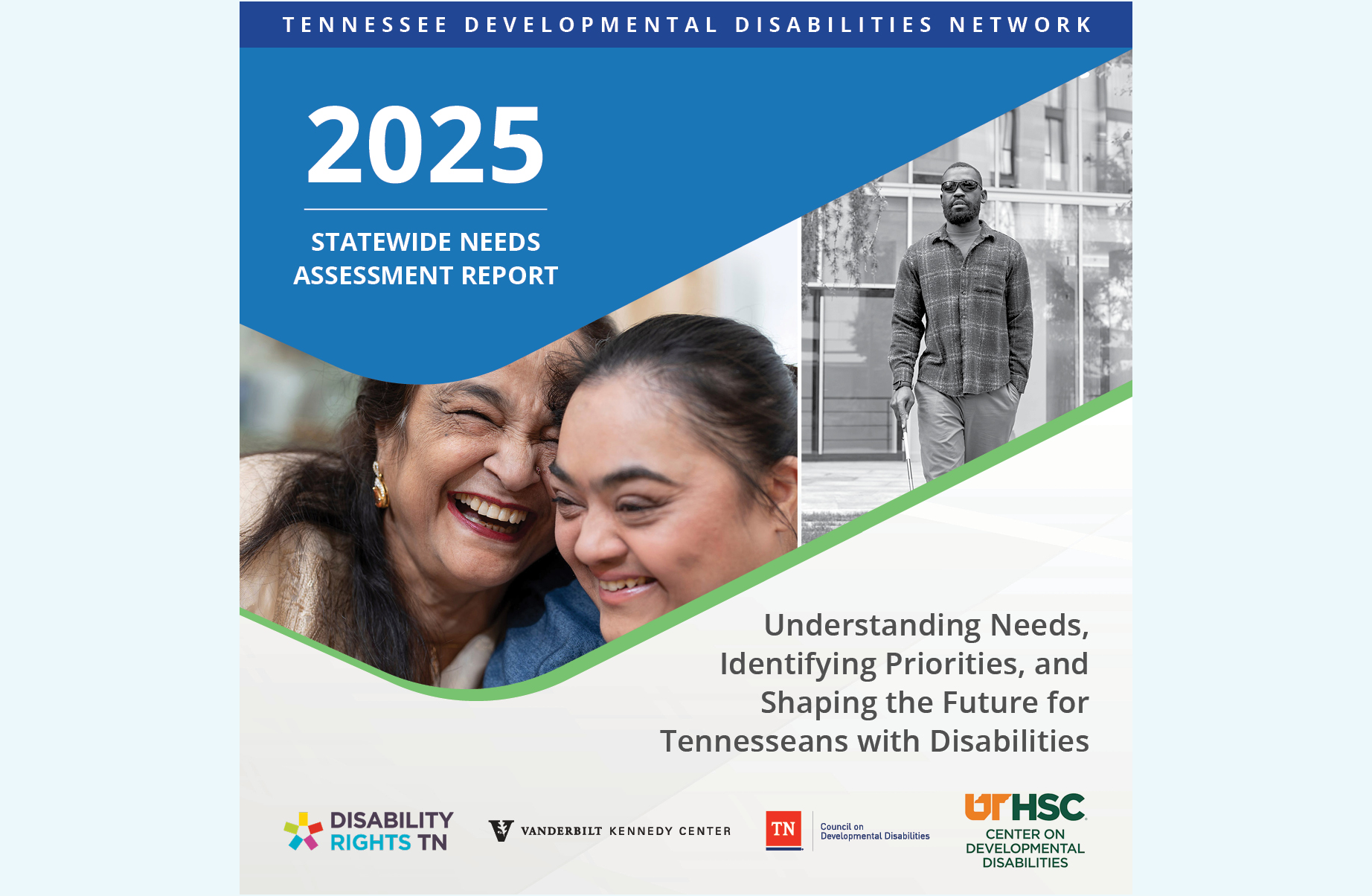What do Tennesseans with disabilities and their families need to lead full, meaningful lives? Nearly 1,500 people across the state shared their experiences, priorities, and hopes through a collaborative needs assessment led by the partners that comprise the Tennessee Developmental Disabilities (DD) Network, including the Vanderbilt Kennedy Center (VKC) (TN IDDRC, UCEDD, LEND).
About the Needs Assessment
Typically, each DD Network partner is responsible for developing its own strategic plan based on the needs and priorities of the disability community.
Not only is this the first time Tennessee’s DD Network partners have collaborated on a joint needs assessment to help develop their respective future planning initiatives, but it’s also the first time any state’s DD Network has worked together at the network level to administer a joint needs assessment.
Launched in 2024, the assessment was a coordinated effort to streamline data collection, reduce the burden on participants, and increase awareness of the DD Network’s role. TN DD Network team members worked closely alongside one another to develop a comprehensive series of questions that would identify unmet needs, service gaps, and barriers experienced by people with disabilities, their families, and professionals in the field.
VKC UCEDD researchers led the process, lending their expertise to survey development, focus groups, and data analysis.
VKC UCEDD co-director Julie Lounds Taylor, PhD, said that working together on the survey required important conversations.
“Collaborating on the joint needs assessment provided us with an avenue to discuss where we each see our organizations moving over the next five years, and what information we each need to be sure our directions were guided by the needs of people with disabilities in Tennessee,” said Taylor. “By having detailed discussions about the activities our organizations are currently involved in and where we might want to go, we have been able to identify new areas where we can work together to leverage the power of our network.”
Who contributed to the report
The DD Network joint needs assessment was available to Tennesseans in both English and Spanish. Participants could respond online, by phone, or on paper. Facilitators offered accommodations such as ASL interpretation and screen reader compatibility, as well as one-to-one assistance for individuals with intellectual disabilities.
Input was gathered through multiple formats (e.g., survey, focus groups) to ensure a wide spectrum of voices were heard. Participants were from a wide range of ages, disability types, races/ethnicities, and geographic locations across the state.
Coordinators received responses from a total of 1,496 Tennesseans:
- 322 were adults with disabilities.
- 693 were family members or loved ones of a person with a disability.
- 481 were professionals in the disability field.
Information gained from the survey
Some of the survey questions asked respondents if their needs were met in a range of areas. The areas of greatest need that emerged were respite and childcare, future planning, and transition from high school, listed in order of priority. Among the responses, the top barriers people listed to getting the help they needed were:
- It costs too much (44%).
- I don’t know where to find help (43%).
- Applying for help is hard or confusing (43%).
The insights from the survey will guide the state’s DD Network’s strategic planning through 2030. Data will inform policy advocacy, program development, and funding decisions, ensuring that future efforts are grounded in the real experiences of Tennesseans with disabilities.
“The joint needs assessment is already informing our UCEDD’s clinical services by highlighting service gaps, especially in rural areas, and guiding telehealth expansion efforts for diagnostic evaluations,” said Bruce Keisling, Ph.D., executive director of the UTHSC Center on Developmental Disabilities in Memphis. “Insights from the survey and focus groups are helping the clinical team refine its approach to accessibility and individualized supports. By integrating findings from both community data and direct service experiences, the UCEDD can better respond to real-time needs.”
To view the full report, visit https://vkc.vumc.org/vkc/ucedd/communityneeds.










